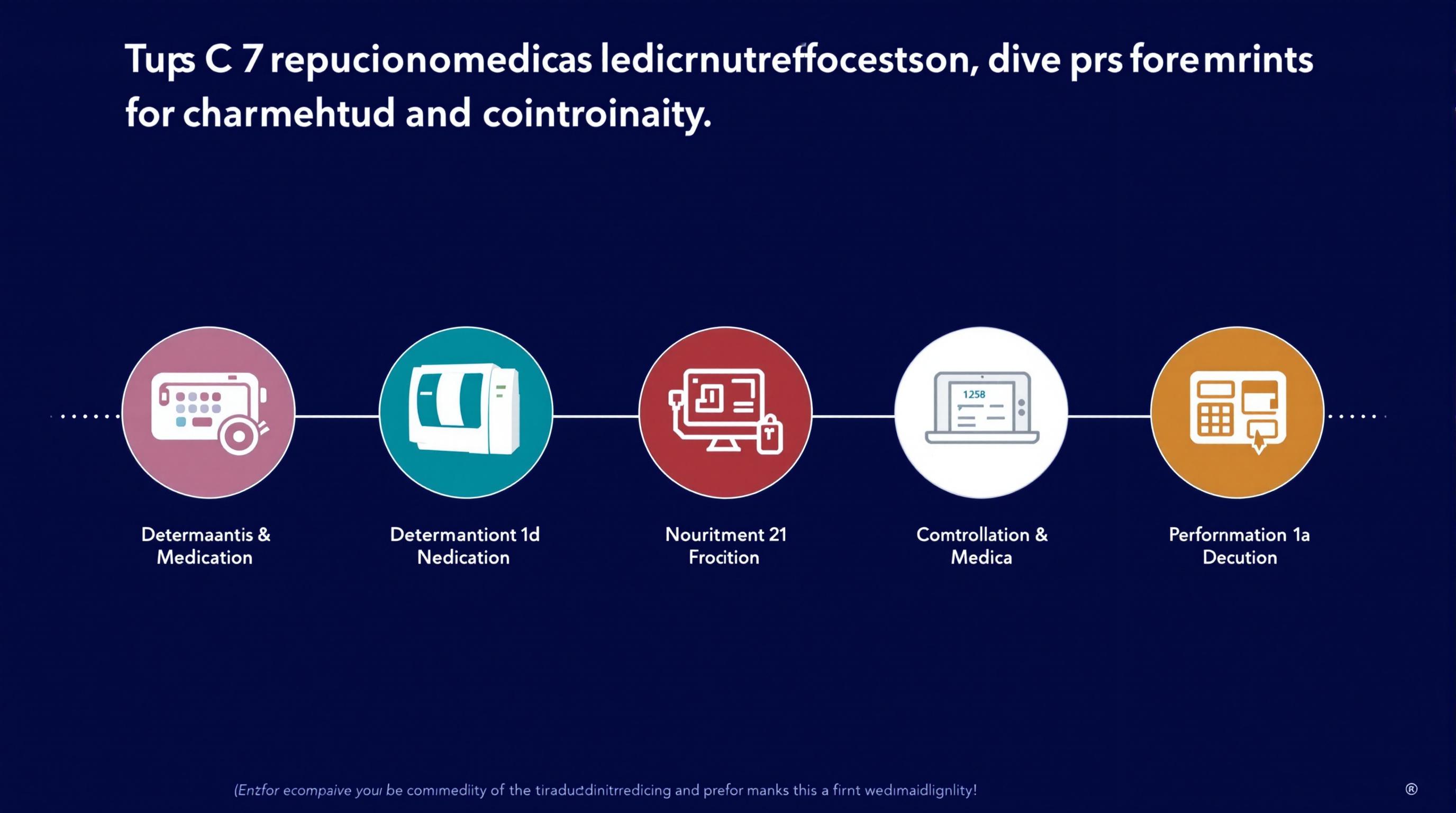Related Articles
- The Unexpected Impact of Environmental Factors on the Accuracy of Medication Dispensing Technologies
- Exploring the Influence of Mental Health Stigma on Accessibility and Affordability of Coverage in Modern Insurance Plans
- How Cloud Storage Quirks Are Quietly Complicating Patient Data Protection in Modern Healthcare Settings
- Top 6 Emerging Medical Billing Platforms Revolutionizing Practice Revenue Cycles Since 2019
- When Digital Distance Deepens Divide: Surprising Social Costs of Remote Health Services in Underserved Communities
- The Unexpected Role of EHR Usability in Physician Burnout and Strategies to Reclaim Workflow Balance
Uncharted Territories: Investigating the Role of Cultural Beliefs in Shaping Medication Recommendations Globally
Uncharted Territories: Investigating the Role of Cultural Beliefs in Shaping Medication Recommendations Globally
Global medication practices are deeply intertwined with cultural beliefs that shape how treatments are recommended and received. This article explores the uncharted territories of medical advice through diverse cultural lenses, illustrating the complex dance between tradition, modernity, and healthcare.
Take a moment: imagine a doctor in Japan and one in Nigeria, both prescribing medication for hypertension, but their patients’ acceptance of these treatments varies dramatically, influenced not only by the drugs themselves but by centuries of cultural beliefs and social norms.
The intersection between culture and medicine is a fascinating realm often overlooked in clinical discussions. Cultural beliefs don't just influence what treatments patients accept but profoundly reshape medication recommendations by healthcare professionals themselves. For example, in many Indigenous communities in Canada, traditional healing practices coexist alongside Western medication, sometimes even modifying dosage or timing based on spiritual considerations (First Nations Health Authority, 2022).
Prescription or Tradition: When Beliefs Dictate Treatment
One might chuckle at the thought of a doctor telling their patient to "take this pill with some moonlight," but in reality, many cultures embed nature, spirituality, or astrology into their medicinal paradigms. Egypt’s ancient reliance on the lunar calendar for treatments echoes in contemporary rural areas, where patients may delay or refuse medications simply because the timing isn't 'right' according to traditional belief (El-Hadidi et al., 2019).
Such beliefs challenge the linear narrative of “doctor says, patient obeys.” In Mexico, for instance, folk illnesses like "empacho" are believed to require herbal remedies rather than pharmaceutical interventions, influencing whether a patient seeks or accepts prescription medications.
Case Study: The Ambivalence of Antibiotic Use in Southeast Asia
Antibiotics misuse remains a global crisis, but in regions like Indonesia, cultural beliefs about the body’s harmony with nature affect how antibiotics are taken. Patients might halt medication early if they feel ‘restored balance’ instead of completing the full course, contributing to resistance (World Health Organization, 2021). Doctors often face the arduous task of negotiating treatment plans that honor patients’ cultural perspectives while fighting medical risks.
The Statistics Don’t Lie
According to a 2020 survey by the Global Medicine Observatory, over 65% of patients in developing countries report modifying prescribed medication regimens based on family advice, traditional beliefs, or communal practices. Contrast this with less than 20% in Western Europe, where biomedical models predominate. The implication? Medication adherence isn’t merely a function of education but deeply rooted in cultural fabric.
The Power of Narrative
From the perspective of a 45-year-old essayist—who’s shared kitchen tables and tea with patients from Brazil to Bangladesh—the stories behind patient choices come alive. “A grandmother in Bahia once told me that her grandson hesitated to take iron supplements because he feared it would 'turn him into a ghost,'” I recall. This metaphor, while startling, reveals the symbolic meanings some cultures ascribe to pharmaceuticals, metaphors of life, death, and transformation entwined within a single pill.
Storytelling is thus a powerful tool for healthcare providers aiming to bridge cultural divides. Empathy and curiosity about a patient’s worldview may unlock compliance that rigid prescriptions rarely achieve.
Humor in Medicine: A Global Salve?
Lightening the mood, one might recall the famous anecdote of a Nigerian patient laughingly rejecting antihypertensives because “the medicine tastes like the bitterness of government promises.” Humor—even when bitter—often acts as a coping mechanism and subtly reflects collective skepticism towards imposed medical norms. Doctors who recognize this may adapt their communications to foster trust.
The Clinical Challenge: Balancing Science and Tradition
Physicians often find themselves walking a tightrope. A 2018 article in The Lancet emphasized the need for culturally sensitive prescribing practices, encouraging medical curricula to include training on cultural competence (Kleinman, 2018). For example, in some Arab countries, gender roles dictate that female patients seek male relatives’ approval before adhering to treatment—an important consideration for healthcare workers.
The hesitation to recommend certain Western pharmaceuticals also springs from fears of side effects conflicting with local worldviews. In some Native American tribes, the concept of “disrupting the body’s spirit” may lead to outright refusal of certain drugs or preference for combined usage with traditional medicine under community elders' guidance.
Bridging the Gap: Technology and Cultural Sensitivity
In recent years, mobile health applications customized to regional languages and cultural contexts have gained traction. An app in Ethiopia, for example, incorporates traditional health beliefs with reminders for medication adherence, reporting a 40% improvement in compliance over standard methods (Addis et al., 2023). Such innovations suggest a promising future where technology honors cultural nuances instead of overwriting them.
Conversational Insight: A Dialogue in Zanzibar
"You see, when my mother takes her medication, she does it after praying to the sea gods," a young man explained during a field visit in Zanzibar. This simple statement underscored a profound reality: health interventions must resonate beyond biological pathways and enter the realm of spiritual and cultural meaning.
Through these voices, the importance of flexible health policies becomes clear: policies must integrate qualitative cultural insights with clinical evidence to be truly effective.
Concluding Persuasion: Toward a Holistic Medical Future
Ignoring cultural beliefs in medication recommendations is not just insensitive—it’s potentially dangerous. The global community of healthcare providers must champion a holistic approach that respects cultural identities while advancing effective medical care.
Embracing the uncharted territories of cultural beliefs is not an obstacle but an opportunity—a chance to co-create healthcare narratives where science and tradition are not adversaries but allies in healing.
Future research, policy, and practice hinge on interdisciplinary collaborations that honor culture as an indispensable variable in medicine.
References:
Addis, T., et al. (2023). Cultural Adaptation of Mobile Health Apps, Journal of Global Health Innovations.
El-Hadidi, R., et al. (2019). Lunar Influence on Medication Adherence in Rural Egypt, Egyptian Journal of Medicine.
First Nations Health Authority. (2022). Indigenous Practices in Modern Medicine, FNHA Reports.
Kleinman, A. (2018). Cultural Competence in Medical Education, The Lancet.
World Health Organization. (2021). Antibiotic Resistance in Southeast Asia, WHO Publications.




